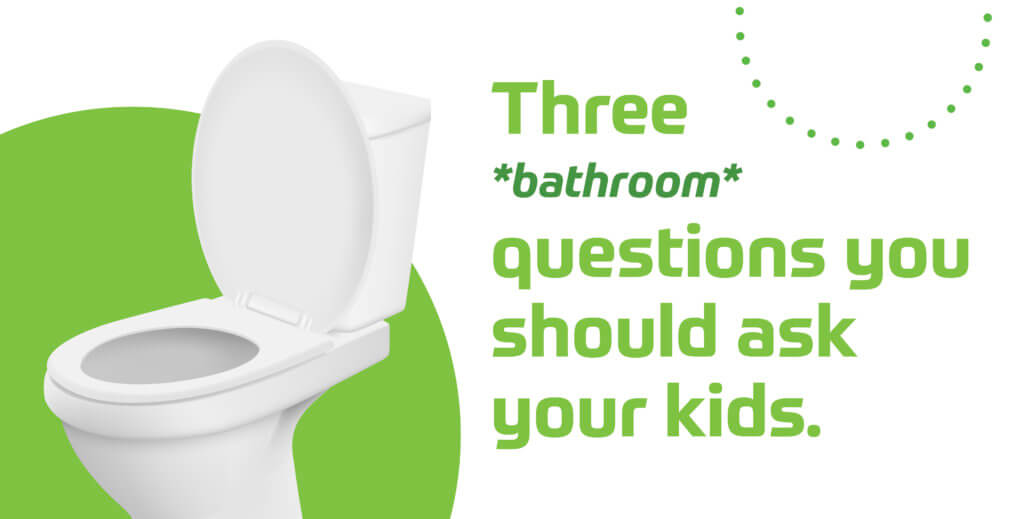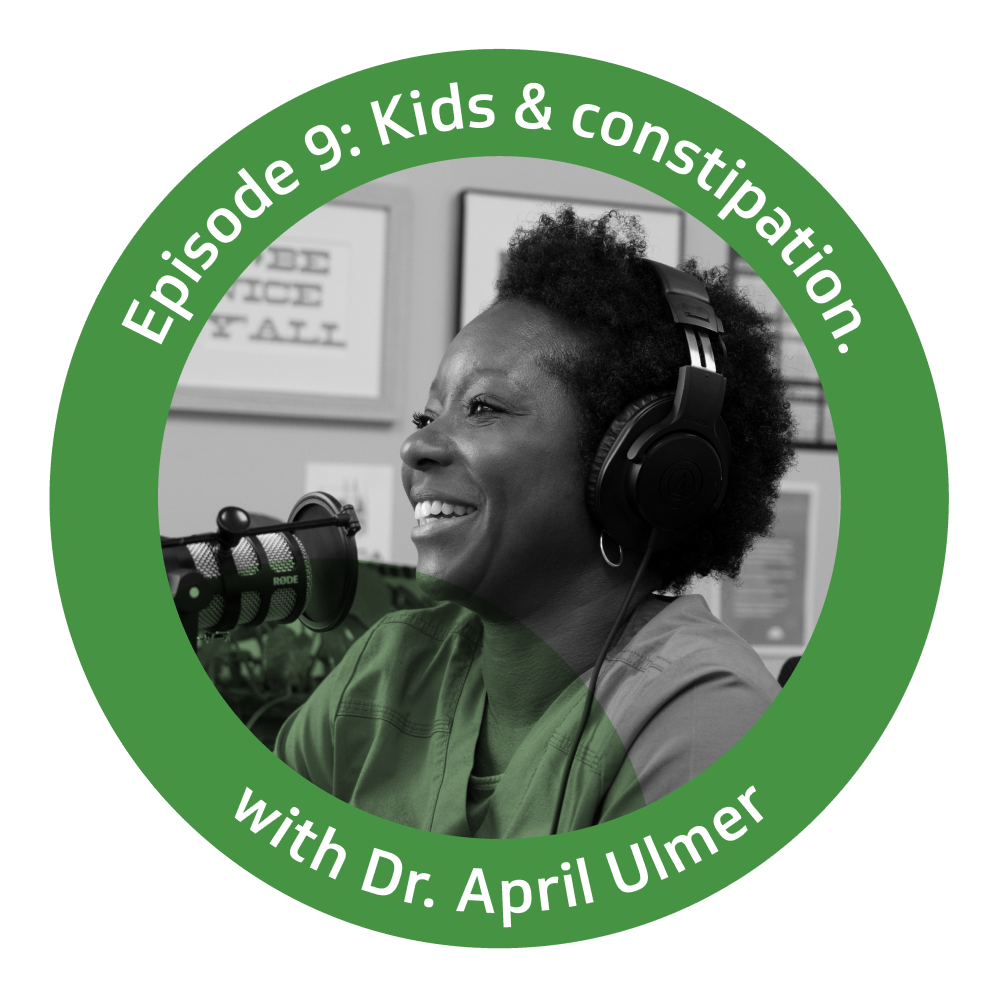Three *bathroom* questions you should ask your kids.

Some conversations are easier to have with your children than others—bathroom activity is no exception. When going to the doctor for your child’s health, you have to know how they’re doing in order to get solutions that work for them. By being a proactive parent, you can help your kid feel good and continue to do the things they love.
Questions you should be familiar with the answers to before going to your doctor:
“How often are you pooping?”
For many kids, time is a hard concept to put into words. Our perception of what’s normal may not make sense to them—instead of asking an open ended question, bringing up specific timelines to get a targeted answer.
“Do you poop everyday?” “Well, if you don’t every day, is it the in-between days?”
“Are you pooping more than once a week?”
Helping them put the time into perspective with specific time-ranges will help you hone in on a more accurate answer when you talk to your doctor about activity. If your little one isn’t old enough to tell you, make note of their—ahem—frequency. Your doctor will generally want to know this to help diagnose any GI issues that may be occurring.
“How does it feel when you go to the bathroom?”
This question helps your doctor understand the full nature of the situation. If they go to the bathroom every day, but it’s taking them a long time, or their bowel movements hurt, it’s a sign of constipation.
Pay attention to behaviors like straining, withholding, hiding, and more.
“What’s the consistency of the poop? Does it hurt your bottom? Is it associated with tummy pain or discomfort? Are you having a strain? Does it take a long time? OK, those things are the questions that really help us to decide whether this is a constipation issue or not.”
April Ulmer, MD, Pediatric Gastroenterologist
“What does your poop look like?”
Embarrassing to answer, but necessary. Much like asking them how it feels, asking them or noticing details of appearance gives your doctor perspective on whether or not diet could be impacting them, along with a myriad of other clues to what’s going on.
“Sometimes you just tell kids, listen, don’t flush. Your tummy is bothering you, I think you might need to see a doctor. I need to know what your poop looks like. There’s no shame in it.”
April Ulmer, MD, Pediatric Gastroenterologist
These three questions might not give you all the answers and solutions, but help start the conversation that will give your child’s provider the tools they need to get their problems fixed faster. As kids deal with stress and learn more about the world around them, open communication with your children will allow them to do more and grow into an advocate for their health. Healthcare is selfcare.
Needing to discuss *bathroom* issues for yourself or your kids? Talk to a digestive specialist today to get your system back on “tract”.
Content inspired by Healthcare is Selfcare: The Podcast
Hear more from Dr. Ulmer on Episode 9:

As parents, many of us never realized how much our worlds would revolve around poop. Dr. April Ulmer, Pediatric Gastroenterologist of Kids & Tummies brings her expertise to this episode of Healthcare is selfcare to discuss kids, constipation, and when to seek medical care.
Prefer to read? Check out the episode transcript here.